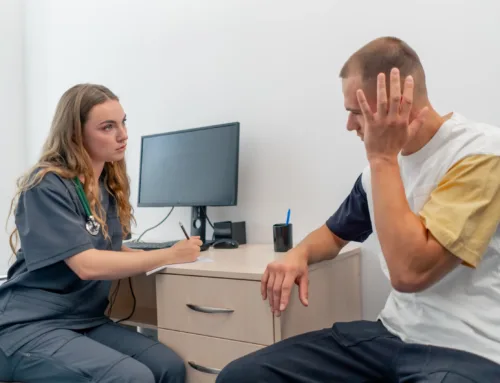Why You Should Rethink Quitting Cold Turkey
When you suddenly stop using drugs like opiates, your body more or less drops into a state of shock. The chemicals it was relying on are gone and it is forced to scramble to pick up the pieces and once again function on its own. Needless to say, the result is nothing more than a messy state of illness where opiate withdrawal symptoms arise and one is left feeling sick and exhausted.
What’s dangerous about this “cold turkey” method of quitting substance use is the combination of withdrawal symptoms and the lack of medical care needed to help manage those symptoms. Detox is unpleasant enough when medically assisted, but when left to its own devices detox can become as severe as life-threatening.
What is cold turkey?
The phrase “cold turkey” supposedly came from a sister phrase “talk turkey,” which means to talk with someone frankly and honestly, without any flowery sugar coating. Cold turkey then first appeared in a 1912 British Columbia newspaper as a reference to a doctor who used this method to break the addictions of his patients: “When [patients] go before him, they are given what is called the ‘cold turkey’ treatment.”
Now, over 100 years later, the phrase is still around in reference to that sudden, non-sugared approach to breaking addiction — even today cold turkey means to quit substance abuse without any form of tapering or medication. However, while the doctors of 1912 might disagree, the doctors of today do not use this method in their treatment, nor do they ever recommend it for someone considering detox at home.
Why is quitting cold turkey dangerous?
When someone quits substance use, their body needs time to recover and adjust to the lack of chemicals. Depending on certain circumstances — such as how long you used and how often, what was used and if it was mixed with other addictive substances — this recovery phase may be more or less severe.
Withdrawal symptoms are the first sign that an addicted body is healing. Detox is the flushing of any leftover substances, and withdrawal is the sign that detoxing is taking place. The dangers lie in these withdrawal symptoms: while some of the symptoms can be as mild as flu-like chills or a runny nose, others can be as threatening as seizures or decreased heart rate.
This is why quitting cold turkey is so dangerous. While the desire to stop immediately is admirable, the reality is that sometimes medical interference is necessary. For your safety, it’s best to consider the benefits of detoxing in a detox facility rather than putting yourself at risk and undergoing the full force of withdrawal.
Opiate withdrawal symptoms & treatment
Again, the most dangerous part of cold turkey is the withdrawal symptoms. While these differ in seriousness from person to person based on the history of the addiction, many of these symptoms will present in some form.
These symptoms include:
- Watery eyes and runny nose
- Restlessness and an inability to sleep
- Muscle aches
- Pupil dilation
- Sweating
- Anxiety
- Fever and chills
- GI issues, including cramping, diarrhea, nausea and vomiting
- High blood pressure and rapid heart rate
- Seizures
- Hallucinations
When you quit cold turkey, you feel the full impact of these withdrawal symptoms. Not to mention the fact that cold turkey withdrawal is rarely successful — many returns to opioids upon feeling these symptoms because of how uncomfortable they can be.
In order to avoid this relapse, detox centers often rely on medically-assisted detox where non-addictive medications (usually methadone or buprenorphine) are used to taper one-off opioids. These medications don’t replace one addictive drug with another; rather, they offer some relief from the potentially harmful withdrawal symptoms. This benefits the patient in numerous ways – it’s safer physically, and it gives one the chance to mentally open themselves up to detox. When you’re overwhelmed with the pain of withdrawal, it’s harder to stay dedicated to detox.
Therefore, to give recovery a fighting chance, it’s rarely recommended to quit opiates cold turkey.
Wondering how to quit opiates?
Quitting opiate use is not impossible and, with a medically assisted detox program, does not have to be excruciating. While breaking any habit is uncomfortable, and changing any lifestyle is challenging, the changes are more than doable with the right support. To learn more about your options for opiate detox, including the benefits of a personalized treatment plan, reach out to Freedom Detox today by visiting our website or giving us a call at (704) 486-5488. We look forward to hearing from you.





